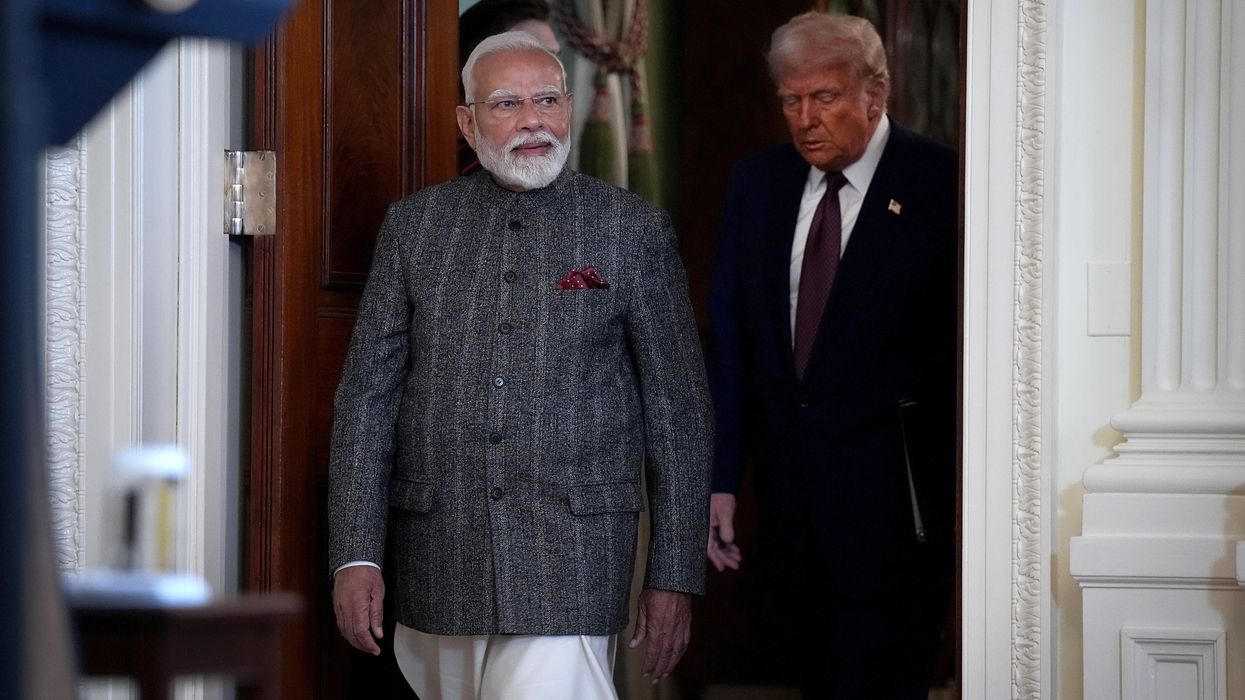SIR OLIVER DOWDEN MP and businessman Koolesh Shah have been appointed co-chairs of the Conservative Friends of India (CF India), following the resignation of Ameet Jogia MBE and Reena Ranger OBE, who had led the organisation since 2019.
Jogia and Ranger stepped down after a five-year term that saw CF India grow into the Conservative party’s largest affiliate group, a statement said. The group was founded by Lord Dolar Popat with prime minister David Cameron in 2012.
Appointed by then-prime minister Boris Johnson, their leadership coincided with two general elections, the Covid-19 pandemic, and the appointment of Britain’s first prime minister of Indian origin, Rishi Sunak.
Sir Oliver is a senior Tory MP who has held several ministerial roles, including deputy prime minister and secretary of state for digital, culture, media and sport. Shah, founder of the London Town Group, is active in philanthropy and community work, particularly in education and social mobility. Sir Oliver and Shah said, “It is a privilege to take on this responsibility and build on the outstanding work of Ameet and Reena. CF India plays a vital role in ensuring that the voice of the British Indian community is heard, valued, and represented in the political mainstream, especially during this highly sensitive time. We are committed to deepening that engagement, supporting the next generation of leaders, and continuing to celebrate the values we share – from entrepreneurship to public service, and from community cohesion to our enduring ties with India.”
Under the outgoing co-chairs, CF India said it significantly strengthened the party’s engagement with British Indian communities. According to the statement, the group played a key role in the 2024 general election, contributing to the Tory victory in Leicester East, where the party’s vote share rose from 11 per cent in 2001 to 49 per cent.
Jogia and Ranger also oversaw the development of outreach, training, and fundraising initiatives. They credited CF India’s director, Nayaz Qazi, and grassroots supporters for their contributions to the group’s progress.
In their farewell statement, Jogia and Ranger said, “We leave with immense pride, having brought vibrancy, energy, and renewed purpose to an organisation that has been integral to our political journeys from the start. We will always support CF India and its new leadership.”












